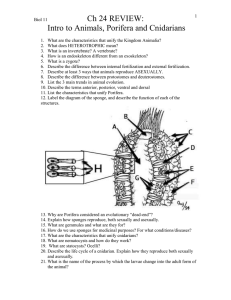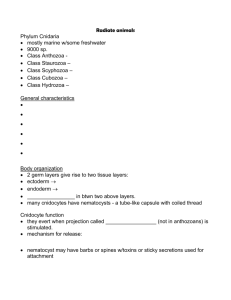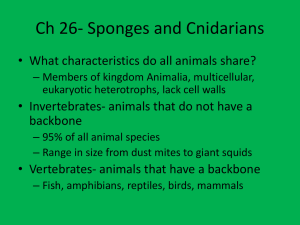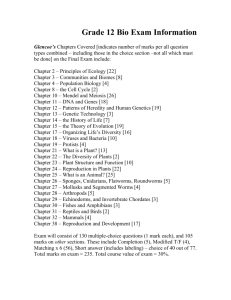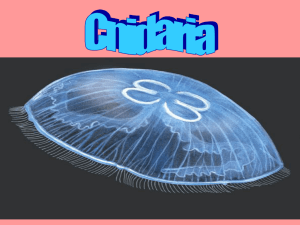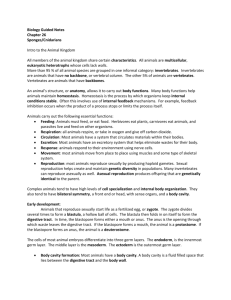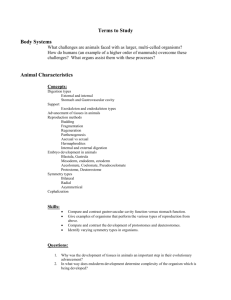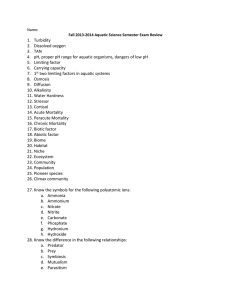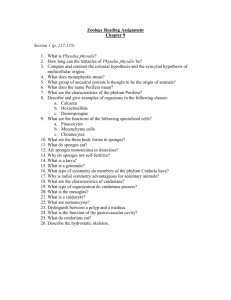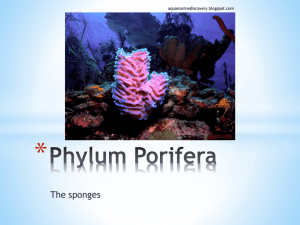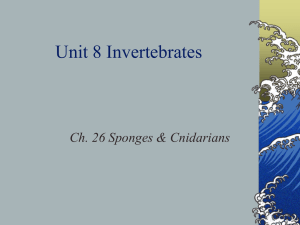Cnidaria Verse Porifera
advertisement
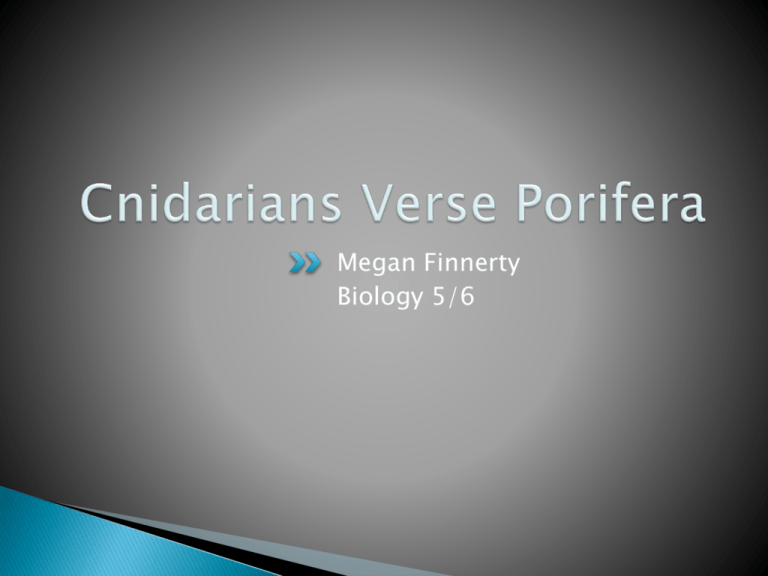
Megan Finnerty Biology 5/6 Cnidarians ◦ ◦ ◦ ◦ Jellyfish Hydra Sea Anemones Coral Porifera ◦ Sponges Symmetrical Multicellular, few tissues, some organelles Contains internal cavity and a mouth Net like nervous system Aquatic environments Minimal skeleton, of chifton or calcium carbonate No definite symmetry. Body multicultural, few tissues, no organs. Has no nervous system. Lives in aquatic areas. All are filter feeders. Often have skeleton of spicules. Cnidarians Feeding Paralyzes prey with tentacles and then the food falls into the mouth. It is then digested in the gastrovascular cavity http://universe-review.ca/R10-33-anatomy.htm Porifera Feeding Takes the Incoming water and filters it. Food particles are then trapped by the choanocytes. Food is digested and then passed along to the archaeocyte cells. http://www.biologie.uni-hamburg.de/b-online/library/onlinebio/BioBookDiversity_7.html Cnidarians ◦ Following the digestion, nutrients are transported by diffusion. ◦ Waste is through the body walls by diffusion. Porifera ◦ As the water moves through the body cavity, oxygen is dissolved. ◦ Waste is diffused. Cnidarians Response Uses the nerve net to detect stimuli http://biodidac.bio.uottawa.ca/thumbnails/catquery.htm?Kingdom=Animalia&Phylum=Cnidaria&category=diagbw Porifera Response No nervous system Can produce toxins instead http://mymarinebiologyhome.blogspot.com/2007/09/shape-of-life-090807.html Uses water in the gastrovascular cavity and hydrostatic skeleton http://funscubadiver.com/gallery/bonaire-giant-sea-anemone.htm O R Uses jet propulsion to move http://lifestyle.iloveindia.com/lounge/jellyfish-facts-5755.html Are Sessile (live adult life stationary) As a larva, it is carried by water currents until stationary larva http://www.biology.ualberta.ca/CMD/home.htm Cnidarians Reproduction Both Sexually and Asexually reproduction Polyps can either reproduce asexually by budding and creating another polyp or producing a medusa The Medusa(male) releases the sperm in open water and fertilizes the egg http://universe-review.ca/R10-33-anatomy.htm Porifera Reproduction Both sexual and asexual reproduction Sperm released into water currents, brought to female for internal fertilization Asexual is by budding or gemmules http://authors.ck12.org/wiki/index.php/Simple_Invertebrates:_Sponges,_Cnidarians,_and_Worms Both are invertebrate Both are protostomes Poriferia have no symmetry while Cnidarians have radial symmetry
